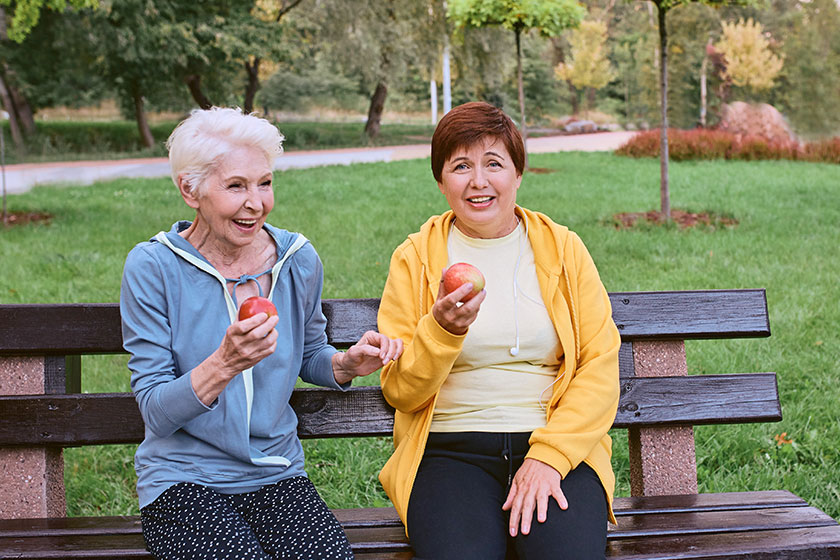When you consider the concept of geriatrics and healthy aging, it is important to look beyond medical care and focus on the broader aspects of living well in later years. This understanding goes beyond addressing health conditions and looks into creating a lifestyle that supports physical, mental and emotional well-being.
Retirement communities play a significant role in fostering environments that cater to these priorities. They offer resources and opportunities tailored to the needs of older adults.
At its core, geriatrics involves specialized medical care for aging individuals. It addresses unique health concerns that arise with age. Meanwhile, healthy aging emphasizes the practices and choices that help maintain vitality and independence as years go by.
Together, these concepts form a foundation for living a fulfilling life, enriched by opportunities to participate in meaningful activities and maintain connections with loved ones.
The Multifaceted Nature of Healthy Aging
Healthy aging is not limited to physical health. It encompasses mental sharpness, emotional resilience and social engagement. As people grow older, maintaining cognitive abilities is just as important as physical health. Engaging in activities and events such as group discussions, puzzles or learning new skills can help support brain health and encourage social connections.
The emotional aspect of healthy aging involves fostering a sense of purpose and contentment. Retirement communities that focus on cultivating a vibrant atmosphere through varied offerings, such as creative workshops or volunteer opportunities, bring residents meaningful experiences.
Emotional well-being is closely tied to social interaction. This makes friendships and relationships an important part of healthy aging.
Geriatrics: Beyond Medical Care
Geriatrics involves a tailored approach to health care for aging adults. It addresses chronic conditions, preventative care and enhancing quality of life. It focuses on managing age-related health challenges such as mobility issues, arthritis and cardiovascular concerns, while also collaborating with older adults to create personalized wellness plans.
This proactive approach often integrates resources like health and wellness programs. These programs emphasize exercise, balanced nutrition, stress management and mental well-being. They offer opportunities to embrace an active, fulfilling lifestyle while addressing individual health needs.
Group fitness classes specifically designed for aging adults present a safe way to maintain physical activity and build meaningful social connections. They contribute to overall well-being and a sense of community.
The Role of Retirement Communities in Promoting Healthy Aging
Retirement communities have evolved to reflect a holistic perspective on aging. They are not merely places to live but environments that encourage personal growth, social engagement, and wellness.
With thoughtfully designed spaces and opportunities, they align with the principles of healthy aging and offer avenues for a balanced and enriching life.
Modern retirement communities often include access to retirement community amenities such as walking paths, fitness centers and wellness programs that promote physical activity and relaxation. Social spaces allow residents to participate in activities that foster relationships and offer a sense of belonging.
Additionally, these communities often create an environment where residents can access specialized care if needed while retaining their independence and individuality. This balance is important in creating a sense of empowerment and ownership over one’s life journey.
Lifestyle Choices That Support Geriatrics and Healthy Aging
Incorporating healthy habits into daily routines is central to the concept of healthy aging. Physical activity, no matter how light, helps maintain mobility and strength. Participating in group fitness classes or outdoor walks not only boosts physical health but also strengthens social bonds.
Nutrition also plays a vital role. Retirement communities often prioritize bringing balanced meals made with fresh ingredients, catering to the specific dietary needs of older adults. These meals support overall health and offer the energy needed to enjoy various activities and events.
Another key aspect is mental health. Regular engagement in hobbies, creative pursuits and social interactions can uplift moods and foster a positive outlook on life. Structured opportunities for lifelong learning or volunteering allow individuals to explore their passions and remain engaged with their communities.
Understanding geriatrics and healthy aging means recognizing the intricate connection between health, happiness and meaningful living. While geriatrics addresses the medical needs of aging individuals, healthy aging focuses on creating a balanced lifestyle that supports physical, emotional and mental well-being.
Retirement communities play a pivotal role in shaping these experiences. With access to amenities, fostering social interaction and emphasizing health, they create an environment where older adults can thrive. When you consider the next steps in your journey or that of a loved one, focusing on these principles will pave the way for a vibrant and fulfilling life.







